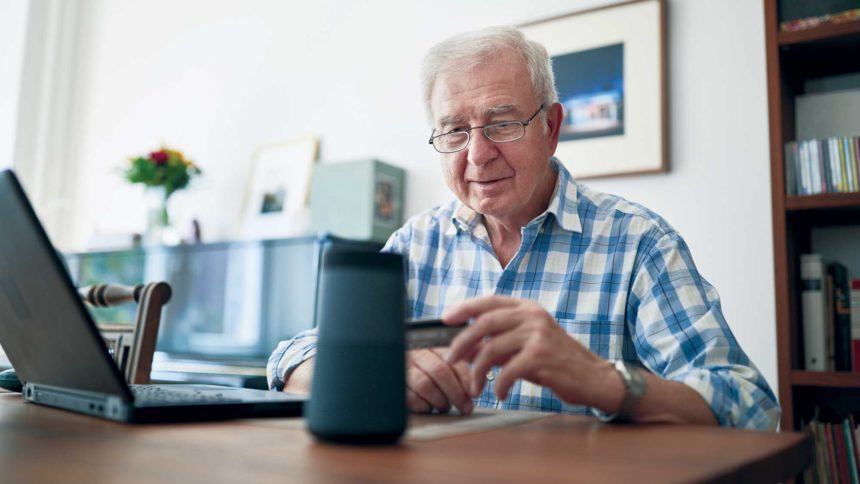
As technology use continues to evolve in long-term care, providers must always keep resident needs in mind while also staying focused on data privacy and security. It’s also an increasingly crucial part of staff retention, a top technology emphasizes.
“Over the past couple years, we’ve seen an explosion of technology: simplified user interfaces, stimulating and appealing content, and tools designed to increase social connections, entertain and help older adults engage with staff and caregivers,” said Majd Alwan, Ph.D., Leading
Age’s senior vice president of technology and executive director of the Center for Aging Services Technologies, at the association’s recent annual meeting.
Voice technologies, for example, are increasingly finding a home in senior care facilities. In 2019, a rehabilitation center in Plymouth, MN, partnered with Soundmind to install 25 Amazon Echo Dots in resident rooms. The speakers help older adults communicate with loved ones, and stay up to date on what time bingo will be or what’s on the menu that evening for dinner — all without navigating a touch screen or keyboard, said Soundmind CEO and co-founder Erum Azeez Khan.
He also noted that some evidence suggests smart speakers may even help lower depression scores among older adults.
These devices also can help residents take more control over their care — and reduce the care burden on nurses. For example, they can be used to set medication and therapy appointment reminders, and streamline questions and care requests.
Care centers interested in implementing smart speakers need to develop security policies around these devices to keep patient data safe and secure, however, notes John DiMaggio, co-founder and CEO of BlueOrange Compliance. This includes training employees to ensure a device’s microphone is off when entering a room, and educating residents on the vulnerabilities that could result from their use.
From the January 2020 Issue of McKnight's Long-Term Care News




